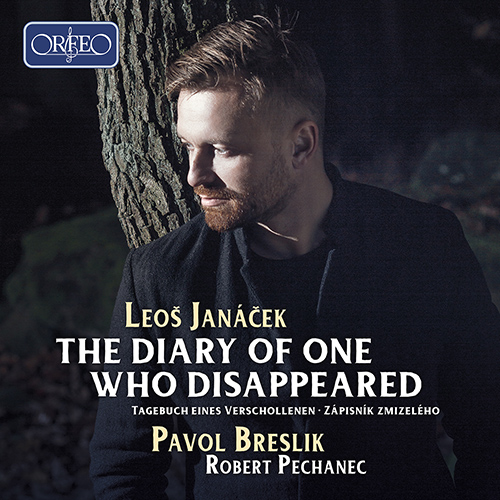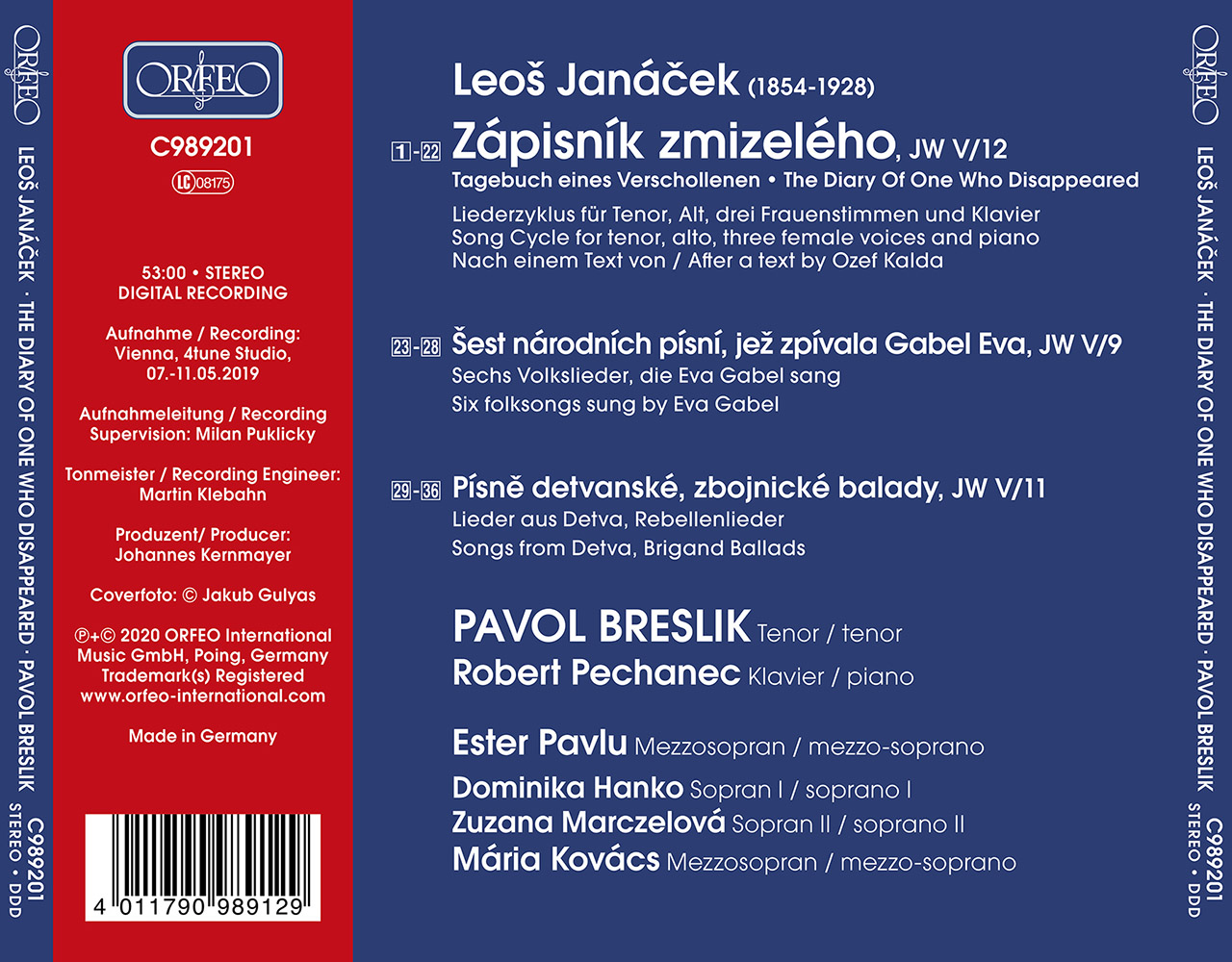Janáček: The Diary Of One Who Disappeared
Leoš Janáček (1854–1928) composed the song cycle The Diary Of One Who Disappeared at a time when many people already considered him on a par with the other two masters of Czech national music, Smetana and Dvořák. The inspiration for the autobiographical ‘Diary’ came from a few enigmatic lines of poetry in two editions of the “Lidove noviny” (People’s Newspaper) of May 1916.
Although this work is Janáček’s most important original song cycle, his keen interest in the folk songs and dances of his Moravian homeland resulted in a plethora of arrangements, making this music also accessible to the classical concert hall. These include the Six Folk Songs Eva Gabel Sang (Šest národních písní jež zpívala Gabel Eva) and the Songs from Detva (Písně detvanské). Quite unlike the songs of the ‘Diary’, which chiefly make reference to the Moravian dialect, the arrangements evince the typically ethnic-sounding music Janáček refined, so to speak, by adding to adaptations of the existing song lines a sophisticated piano part in the tradition of the great song compositions of the 19th century.

















